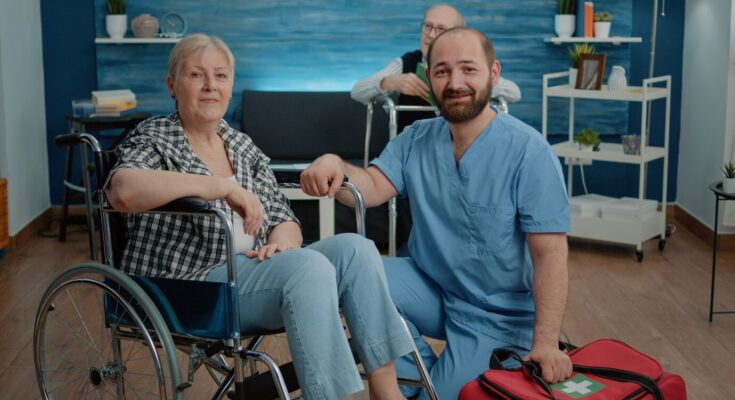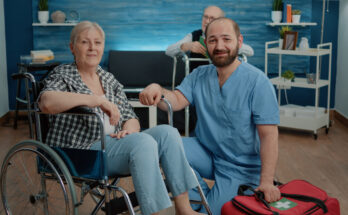Caregiver And Nurse Jobs In Italy With Visa Sponsorship 2025

Caregiver And Nurse Jobs In Italy With Visa Sponsorship 2025.Thinking about working abroad? If you’re in the caregiving or nursing field, Italy might just be calling your name. With its picturesque towns, rich culture, and now—a rising demand for healthcare workers—2025 presents a golden opportunity. Especially if you’re looking for jobs with visa sponsorship, this is your moment. Let’s dive into everything you need to know.
COMPANY DETAILS
| Company Name | Caregiver And Nurse Jobs |
| Job Location | Italy |
| Nationality | All Nationality Can Apply |
| Education | Diploma/Degree in Relevant Position |
| Experience | Preferred |
| Salary Range | Depending Upon the Job Title |
| Employee Benefits | Attractive |
Why Italy Needs Caregivers and Nurses
Italy has one of the oldest populations in Europe. By 2025, it’s projected that nearly 30% of Italians will be over 60. That means more people will need medical attention, companionship, and personal care. But here’s the catch: the local healthcare system is understaffed. That’s where you come in.
What Is a Visa Sponsorship Job?
When a job includes visa sponsorship, it means the employer is willing to support your legal entry into the country. This usually includes paperwork, application fees, and sometimes even housing or relocation support. For non-EU workers, this is a game-changer.
Types of Caregiver and Nurse Roles in Italy
Home Care Assistants
These are the angels who help people with their daily routines—cooking, bathing, taking meds, and simply offering companionship.
Elderly Caregivers
Focused specifically on older adults, these roles are in high demand and often come with live-in options.
Registered Nurses
If you’re licensed, you can work in hospitals, clinics, or private practices. These roles are more technical and may require higher certifications.
Specialized Nurses
Think ICU, neonatal, surgical nurses—Italy is hiring across the board, especially in urban centers like Milan and Rome.
Requirements to Work as a Caregiver in Italy
Language Proficiency
Basic Italian is usually enough for caregiving. Many employers even provide short language courses.
Educational Background
You don’t always need a formal degree—just relevant training or a caregiving certificate can do.
Experience and Certifications
1–2 years of experience is often preferred, and First Aid or CPR certifications can boost your chances.
Requirements to Work as a Nurse in Italy
Nursing Degree Recognition
If you’re trained outside the EU, your degree must be officially recognized by the Italian Ministry of Health.
FNOPI Registration
This is Italy’s nursing board. You can’t legally work as a nurse without being on their registry.
Language Exam
You’ll need to pass at least a B1-level Italian language test, especially for public sector jobs.
How to Apply for Visa Sponsorship Jobs in Italy
Finding Authentic Employers
Use trusted job platforms like EURES, Indeed Italy, or official hospital websites.
Documents Required
- Valid passport
- Resume (CV)
- Certifications
- Reference letters
- Criminal background check
Application Process
- Apply online
- Attend an interview (often virtual)
- Receive a job offer
- Begin visa application with employer support
Top Agencies Offering Visa Sponsorship for 2025
Best Known Italian Recruiters
- Adecco Italia
- Manpower
- Randstad Health
International Recruitment Agencies
- Global Nurse Force
- Medacs Healthcare
- O’Grady Peyton International
Government-Backed Programs
Keep an eye on seasonal recruitment programs and bilateral labor agreements.
Salary Expectations
Caregiver Average Salary
Typically around €900–€1,200/month, often with housing included.
Nurse Average Salary
Ranges from €1,800 to €2,500/month, depending on experience and region.
Regional Pay Differences
Northern Italy pays more than the south, and cities generally offer higher wages.
Working Conditions and Hours
Shift Patterns
Expect 8-12 hour shifts, sometimes rotating day and night.
Living Arrangements
Many caregivers live with the families they serve, which can save on rent.
Public vs Private Sector
Private hospitals often pay more, but public ones offer job security and benefits.
Legal Rights of Foreign Workers in Italy
Employment Contracts
Make sure everything’s in writing, and never work without a signed contract.
Healthcare Access
You’ll get a health card and access to Italy’s excellent public healthcare.
Worker Unions
Organizations like UIL or CGIL help protect foreign worker rights.
Living in Italy as a Foreign Worker
Cost of Living
Major cities are pricier. Budget around €700–€1,200/month for rent and food.
Cultural Adjustment
Italians are friendly, but learning local customs will help you blend in faster.
Language Learning
Free and paid resources are everywhere—Duolingo, local community classes, or employer-sponsored programs.
Success Stories of Foreign Caregivers and Nurses in Italy
Meet Maria from the Philippines—she started as a caregiver in Rome and is now a registered nurse. Or Ahmed from Egypt, who works in Milan’s leading private hospital. Real people, real dreams coming true.
Common Mistakes to Avoid
Falling for Scams
Never pay large fees to agents upfront. Use official channels.
Ignoring Legal Docs
Keep copies of everything—contracts, ID, visa documents.
Lack of Language Prep
Brush up on your Italian. It’s more than just polite—it’s your career tool.
Future Outlook for Healthcare Jobs in Italy
Growth Forecast
By 2030, Italy is expected to double its foreign healthcare workforce.
Long-Term Opportunities
Many jobs turn into permanent roles or lead to family reunification visas.
Residency Potential
After five years, you can apply for permanent residency, and later, even citizenship.
Conclusion
Italy isn’t just a travel destination anymore—it’s a land of opportunity for caregivers and nurses in 2025. With visa sponsorships becoming more common and healthcare needs on the rise, this could be your chance to build a better life while making a real difference. Take the first step today—your future self will thank you.
FAQs
Can I apply without knowing Italian?
Basic Italian is highly recommended, but some jobs provide language training.
Do I need previous experience?
Most caregiver roles prefer at least one year of experience. For nurses, it’s essential.
What are the age limits for applicants?
There are usually no strict age limits, but being fit and healthy is key.
Can I bring my family with me?
Yes, with a long-term visa, family reunification is possible.
How long does the visa process take?
Typically 2–4 months, depending on paperwork and embassy processing times.


